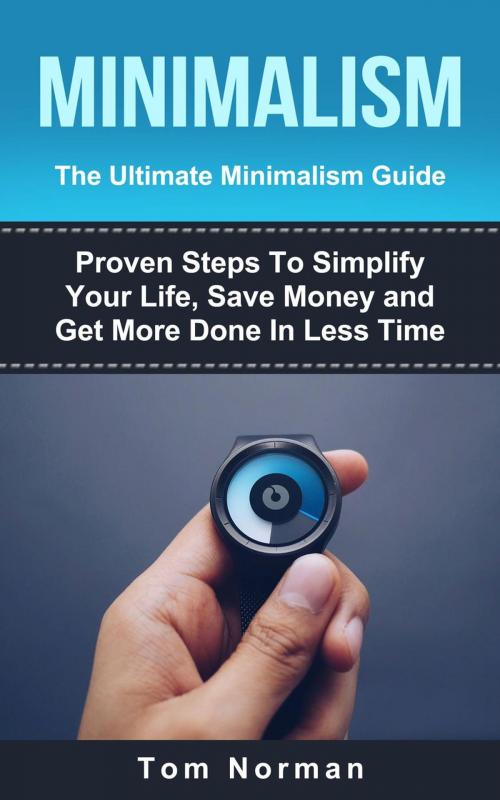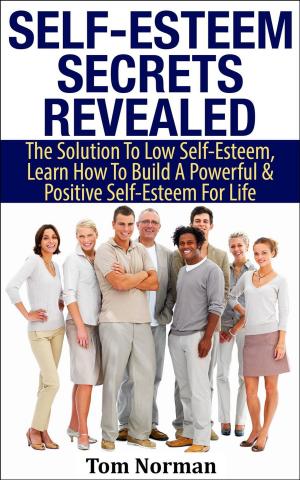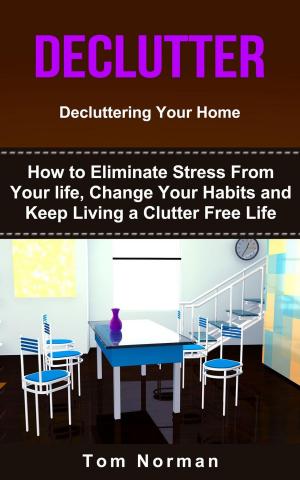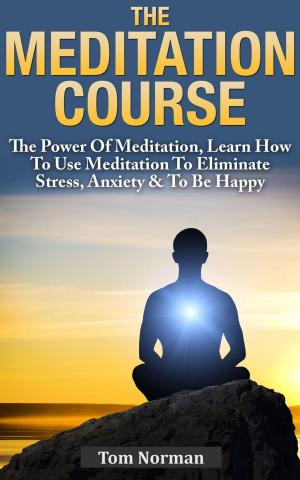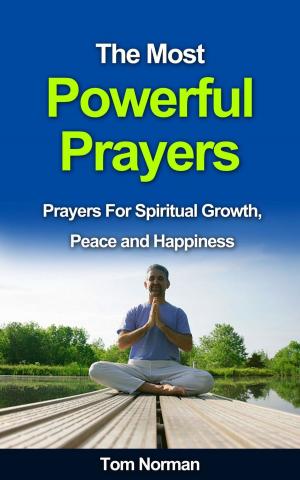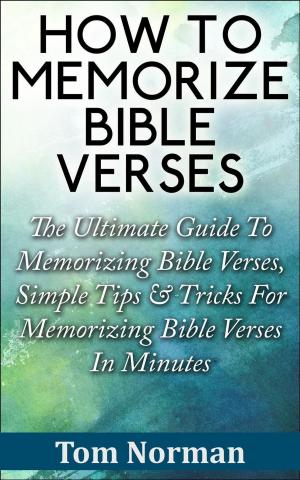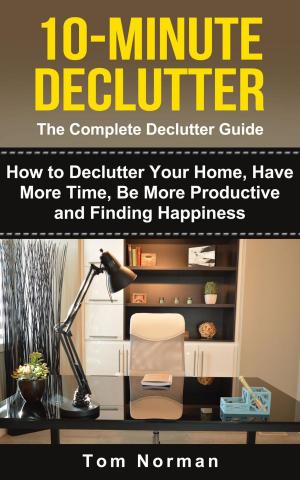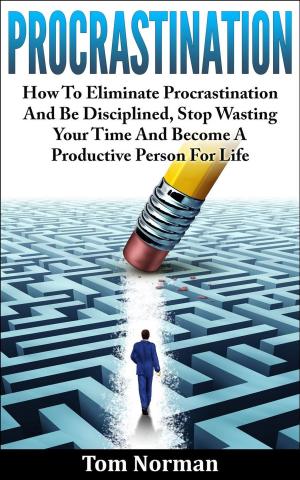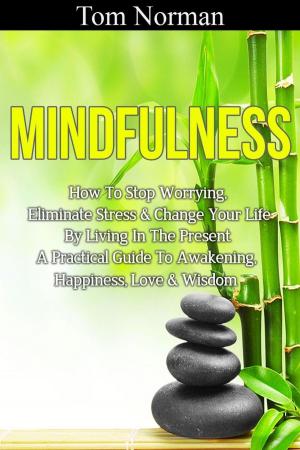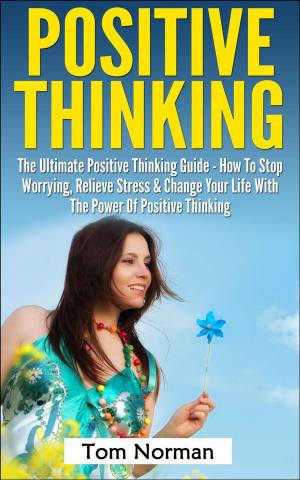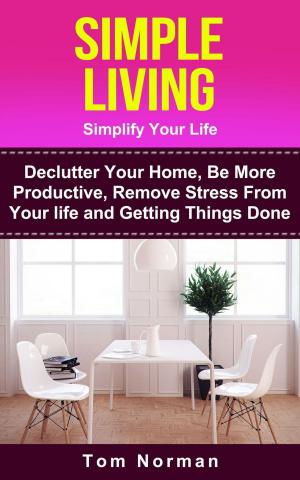Minimalism: The Ultimate Minimalism Guide: Proven Steps To Simplify Your Life, Save Money and Get More Done In Less Time
Nonfiction, Health & Well Being, Self Help, Self Improvement, Stress Management, Mental Health, Happiness| Author: | Tom Norman | ISBN: | 9781524259044 |
| Publisher: | Tom Norman | Publication: | March 11, 2016 |
| Imprint: | Language: | English |
| Author: | Tom Norman |
| ISBN: | 9781524259044 |
| Publisher: | Tom Norman |
| Publication: | March 11, 2016 |
| Imprint: | |
| Language: | English |
Minimalism: The Ultimate Minimalism Guide: Proven Steps To Simplify Your Life, Save Money and Get More Done In Less Time
This book contains proven steps and strategies on how to achieve a simple life through minimalism.
In this book, you will find effective strategies on how to begin your journey towards minimalism. You will understand the concept of this lifestyle and you will learn how you can apply it in your life. When you finish reading this book, you will gain a new perspective in life and you will realize that having the most luxurious things in life is not really the key to happiness.
Here Is A Preview Of What You'll Learn...
Introducing Minimalism
Personal De-clutter
Home De-Clutter
Office De-clutter
Minimalist Spending
Own Less, Do More
Much, much more!
Introducing Minimalism
Some people freak out when they hear “capsule wardrobe” or “100 possessions”. If you are not familiar with minimalist terms, capsule wardrobe is a closet with a maximum of 50 clothing items while the “100 possessions” term is the total of everything a person (minimalist) owns. Unlike “100 possessions”, the capsule wardrobe is open for customization, meaning a person can choose how many clothes he or she wants to keep. The real deal is to own as less as possible, keeping only the clothing items that you wear at least 75% of the time.
These descriptions - capsule wardrobe and 100-item possessions - are linked to minimalism, but the truth is that it’s more than that. Minimalism is not only about owning less than 100 things or wearing the same type of clothes every day, although some minimalists practice the extremes. The main concept of this trending lifestyle is to own less stuff in order to get the most out of life.
With a minimalist lifestyle, you free yourself from stress, anxieties, guilt, depression, and fear. Owning fewer things will give you a whole new perspective about life and everything else under the sun. You will experience life in a more satisfactory, fulfilling way. Again, that doesn’t mean that minimalism is against having material or physical possessions.
Minimalists all over the world live different lives. They have different standards and ways of accepting the life with less stuff. Some are parents, others are world-trotters. There are students and there are business people. Even though they have different status quo, they consider themselves minimalists, not because they own less than a hundred things, but because they aim to get rid of any excess in their lives. They aim to make room for the fulfillment, happiness, and freedom.
Consider the following benefits of minimalism:
-
Less Spending
The most common reason why people embrace minimalism is frugality. By simplifying your life, you free yourself from impulse buying. Every cent counts because you will only be buying the things that you really need. (Find out more in Chapter 5.) -
Less Stress
As you start getting rid of unnecessary stuff, you will have fewer things to maintain and clean. If you can lessen the burden of having possessions, then you can enjoy a more relaxed life with lesser (or no) stress. Just imagine how it would feel to have fewer things to clean up, to have clearer countertops, and to have more space in your house to breathe and relax. Sounds good, right? -
Increase Productivity
Nowadays, people tend to multi-task most of the time, and this is not necessarily good. One classic example is when you browse the internet. At first, you’re simply thinking about searching for specific information for your project.
Minimalism: The Ultimate Minimalism Guide: Proven Steps To Simplify Your Life, Save Money and Get More Done In Less Time
This book contains proven steps and strategies on how to achieve a simple life through minimalism.
In this book, you will find effective strategies on how to begin your journey towards minimalism. You will understand the concept of this lifestyle and you will learn how you can apply it in your life. When you finish reading this book, you will gain a new perspective in life and you will realize that having the most luxurious things in life is not really the key to happiness.
Here Is A Preview Of What You'll Learn...
Introducing Minimalism
Personal De-clutter
Home De-Clutter
Office De-clutter
Minimalist Spending
Own Less, Do More
Much, much more!
Introducing Minimalism
Some people freak out when they hear “capsule wardrobe” or “100 possessions”. If you are not familiar with minimalist terms, capsule wardrobe is a closet with a maximum of 50 clothing items while the “100 possessions” term is the total of everything a person (minimalist) owns. Unlike “100 possessions”, the capsule wardrobe is open for customization, meaning a person can choose how many clothes he or she wants to keep. The real deal is to own as less as possible, keeping only the clothing items that you wear at least 75% of the time.
These descriptions - capsule wardrobe and 100-item possessions - are linked to minimalism, but the truth is that it’s more than that. Minimalism is not only about owning less than 100 things or wearing the same type of clothes every day, although some minimalists practice the extremes. The main concept of this trending lifestyle is to own less stuff in order to get the most out of life.
With a minimalist lifestyle, you free yourself from stress, anxieties, guilt, depression, and fear. Owning fewer things will give you a whole new perspective about life and everything else under the sun. You will experience life in a more satisfactory, fulfilling way. Again, that doesn’t mean that minimalism is against having material or physical possessions.
Minimalists all over the world live different lives. They have different standards and ways of accepting the life with less stuff. Some are parents, others are world-trotters. There are students and there are business people. Even though they have different status quo, they consider themselves minimalists, not because they own less than a hundred things, but because they aim to get rid of any excess in their lives. They aim to make room for the fulfillment, happiness, and freedom.
Consider the following benefits of minimalism:
-
Less Spending
The most common reason why people embrace minimalism is frugality. By simplifying your life, you free yourself from impulse buying. Every cent counts because you will only be buying the things that you really need. (Find out more in Chapter 5.) -
Less Stress
As you start getting rid of unnecessary stuff, you will have fewer things to maintain and clean. If you can lessen the burden of having possessions, then you can enjoy a more relaxed life with lesser (or no) stress. Just imagine how it would feel to have fewer things to clean up, to have clearer countertops, and to have more space in your house to breathe and relax. Sounds good, right? -
Increase Productivity
Nowadays, people tend to multi-task most of the time, and this is not necessarily good. One classic example is when you browse the internet. At first, you’re simply thinking about searching for specific information for your project.
